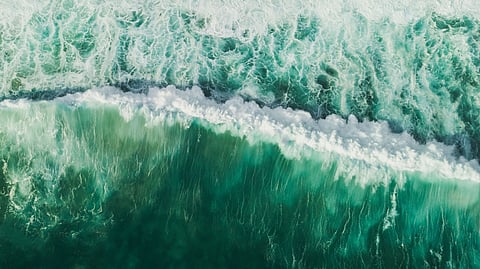

The world is immersed in a process of ecological transition. That is, a model of life more respectful with the environment and people. We can agree that aquaculture has clearly the potential to be part of the solution. This is why companies, governments, and other industry players are rethinking the way to produce food.
Aquaculture has taken on an indisputable fundamental role when we talk about a more sustainable, inclusive, and responsible diet for society and the future environment. Now, companies want to promote responsible, safe and affordable food while striving to complete the green transition of their businesses.
It seems a common thought that environmental regulations are necessary for preserving biodiversity. Also, as happens with other industries, aquaculture production causes several negative impacts on the environment. We all should consider this. This is main the reason why extensive collaboration is necessary with R&D&i centers, Universities, and public organisms.
For example, the Norwegian government has introduced licensing and control systems to keep to maintain salmon production at sustainable levels. Besides, it has promoted the development of new technologies that can resolve fish diseases, in particular sea lice. Furthermore, the introduction of other species than salmon and trout so the aquaculture production can be diversified.
Another proof of this is the Marine Scotland Directorate of the Scottish Government initiative. Currently, it has two consultations open as part of the 10-year Future Fisheries Management Strategy. Thereby, stakeholders will share their views on fishing activities and electronic monitoring activity in Scotland's waters through the respective.
Regarding this, Rural Affairs Secretary, Mairi Gougeon, said the Scottish Government is committed to being "a world leader in fisheries management". The remote electronic system will allow the monitoring of fishing activity for certain parts of the fishing fleet. Also, it will add a rich scientific base.
On the other side, countries that adopt strict environmental regulations sometimes experienced slow growth. Due to the lack of technically feasible solutions for certain aquaculture companies. To this is added the lack of convenient evaluations that qualify if these solutions are really working.
We should keep in mind the battle is happening between the Canadian government and the suppliers association. The Canadian Aquaculture Suppliers Association asked the Government to step back its decision to close all net-pen salmon farming in British Columbia's Discovery Islands.
Furthermore, a group of First Nations warned they will renew salmon licenses regardless of the government's decision. They will appeal for their aboriginal rights and issue the licenses themselves. Previously, they already won some legal cases protecting their aboriginal rights to fish in their territories.
Every great challenge begins with small changes in guidelines and, above all, new and open mentalities. It is especially important to give visibility to those agents, who are beginning to dare to make changes. In this way, we will make the followed goal more tangible and it will serve as a model and example for others.
CICERO Shades of Green AS provides independent, research-based evaluations of green bond investment frameworks to determine their environmental robustness. It also offers assessments of companies, sustainability-linked bonds, and impact reports. CICERO approved Mowi and Grieg Seafood's green bonds.
In more detail, Mowi completed a EUR 200 million 5-year, senior unsecured green bond issue, marking the first-ever Green Bond issued from a seafood company. Further, completed the placement of a green bond of NOK 1.5 billion. This capital was allocated to projects that contribute to sustainable farming practices and deliver environmental benefits.
Regarding the green bonds, Catarina Martins, Mowi's chief sustainability officer, said: "The green bond issue is an integral part of Mowi's sustainability strategy, The Blue Revolution Plan. This will allow us to achieve our goal of producing more food from the ocean thus meeting the demands of a growing population while respecting the planet and helping local communities to flourish."
On the other side, we find the German start-up Next Tuna, which has taken up the challenge of being the first company to complete the Atlantic Bluefin Tuna's reproductive cycle in large-scale aquaculture. Next Tuna will try to build the first commercial land-based, Atlantic Bluefin Tuna-specific aqua farm to successfully breed this species in safe and controlled conditions.
Finally and as the last example of thousands, Pioneer, a sustainable infrastructure investment firm, and Verdane acquired Scanbio Marine Group to build Europe's leading aquaculture waste management provider. This partnership will contribute to the green transition, circular economy, and sustainable food production.
